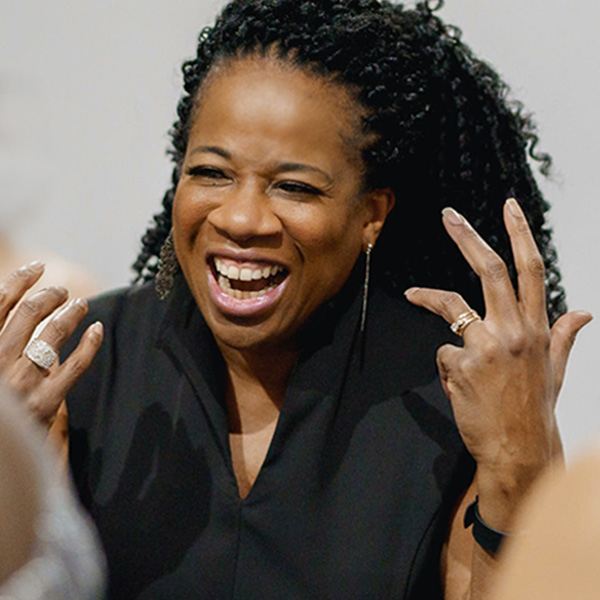In recent years, since the launch of the #MeToo movement, the film and television industries have been faced with numerous allegations of sexual misconduct and abuse against powerful figures in Hollywood, as well as growing demands for meaningful reform.
A reckoning is taking place in other artistic fields too – some of them already centuries-old when the first movie theatres opened their doors in the 1890s. And while much of the rethinking that is going on relates to stopping the mistreatment of women, much of it is also focused on other communities that have experienced abuse and harassment in the artistic industries.
A growing number of musical artists, some of them graduates of the Schulich School of Music, are creating works that explore themes of violence against women and sexual abuse. Some of these artists are being candid about their own experiences with sexual violence or harassment, while others work behind the scenes to create a safer and more just working environment for everyone.
The motivations for these artists are often deeply personal.
In 2015, Joshua Hopkins, BMus’01, MMus’04, lost his sister Nathalie when she was murdered by her ex-boyfriend. Her death was one of 497 intimate partner homicides between 2014 and 2019 in Canada, a period that saw a 14 per cent rise in the crime.
At the time of her murder, Hopkins was 90 minutes away, performing The Barber of Seville with the National Arts Centre Orchestra in Ottawa.
“I felt completely powerless. I was in complete shock,” Hopkins says. Feeling the need to do something, he spoke with the orchestra about commissioning a new work, both to help him deal with his grief and to raise awareness about violence against women.
Those discussions eventually resulted in “Songs for Murdered Sisters,” a new song cycle that Hopkins recently debuted online through Marquee TV.
“Who is my sister? She is now emptiness. She is now air,” Hopkins sings at one point. The baritone, who has performed at some of the world’s most renowned music halls and who recently won a Juno Award for his contributions to the album Massenet: Thaïs, collaborated on “Songs for Murdered Sisters” with composer Jake Heggie and writer Margaret Atwood.
“For me, I’ve seen it as a very personal journey,” says Hopkins. “I’m solely going on my own experience, my own loss, grief and rage. Through [the poetry in these songs], I realize my sister is with me the whole time. This tragedy has now motivated me to act, to learn and be open and vulnerable, and to listen – to understand the issue and my part in it and how I can help enlighten those around me, especially men.”
In an interview with The Guardian, Atwood said her work on the project was influenced by her memories of two friends who were murdered by former romantic partners. “Joshua, of course, was very upset and talked about some of his emotion. So, I tried to put some of that in as well.”
Heggie calls the eight-song cycle Hopkins’ “Winterreise,” the famous Schubert song cycle about a wanderer lost in a world of grief and rage and looking for answers. But while the song “Rage,” with its rolling arpeggio, is reminiscent of a Schubert epilogue, the comparison ends there. Crunching, dissonant chords rise to a shattering climax in the libretto written by Atwood: “Rage and hatred, jealousy and fear. So many sisters killed over the years, thousands of years. Killed by fearful men.”
Hopkins looks forward to bringing the song cycle to different cities once that becomes possible.
“I certainly hope that Orchestre Métropolitain or the Montreal Symphony would be interested in presenting it,” he says. “I have spoken to [Orchestre Métropolitain de Montréal music director] Yannick Nézet-Séguin about the project and he’s definitely interested. I think there’s a very strong chance that the orchestral version will come to Montreal in some fashion, but the talks are very early right now.”
Like Hopkins, Aria Umezawa, BMus’16, is a young veteran of the opera world. A stage director, producer and singer, Umezawa has attracted attention for her efforts to make the opera world more inclusive.

She is the co-founder of Amplified Opera, a Toronto-based initiative that derives its name from its goal to amplify the voices of those who often haven’t felt welcomed in the opera world – creators from BIPOC and LGBTQ communities, for instance. Umezawa has first-hand experience of what it can be like to be made to feel that you don’t quite belong.
She was shocked in 2016 when a famous coach greeted her at the Merola Opera Program in San Francisco by bowing deeply, hands in prayer, saying, “Oh, Umezawa-san, it is good-a to meet-a you.” (Umezawa is biracial and her father is Japanese.)
“I remember thinking, I don’t know how to react in this moment because of how confidently the person just said that,” she says.
As a McGill frosh leader in her student days, Umezawa had trained as a facilitator for anti-discrimination and anti-harassment workshops. In the initial days of #MeToo, she realized there was no equivalent training within the greater classical musical community. So, using her old Leadership McGill files as a starting point, she began to develop one.
Her workshop, “Safe to Run: Bystander Intervention Training for the Rehearsal Room,” has been used by opera companies across North America. It utilizes case studies to discuss the types of language that organizations can use to talk about issues of harassment and racism with their musicians, the steps that can be taken to help people feel less inhibited about discussing these issues, and the cultural factors in the classical music world that contribute to the persistence of these problems.
Participants in the workshops often share tales about the things they have had to contend with. “You’d be hard-pressed to find someone in my industry who hasn’t had an experience at some point in their career with harassment,” says Umezawa.
After multiple allegations of sexual misconduct were brought up against opera superstar Placido Domingo two years ago, Umezawa was asked to be one of the featured speakers at a forum on harassment and intimidation in Los Angeles organized by the American Guild of Musical Artists.
“One of the things I reference a lot [in the workshop] is the hierarchy of the rehearsal room,” says Umezawa. “It’s set up in such a way that harassment is easy, to have people crossing boundaries and abusing the influence they hold over other people. Part of the solution to that problem is shifting the culture of our rehearsal spaces and art organizations and flattening that.”
Amplified Opera was recently named the first Disruptor-in-Residence at the Canadian Opera Company (COC). Amplified will promote diversity, inclusivity and equity over the course of its two-year residency at the COC, while benefitting from the COC’s expertise in certain areas – in digital content creation, for instance.
“As a national performing arts organization, it is our responsibility to boost the voices of those that regularly challenge artistic norms, practices — and us,” said COC deputy general director Christie Darville in a statement.
Bassoonist Katelin Coleman, BMus’12, returned home to British Columbia after being subjected to unwelcome advances and then a physical assault by one of her direct supervisors and colleagues at the Danish Radio Symphony Orchestra. “It’s not a unique story,” she says over Zoom from her backyard in Vancouver. She complained about his behaviour, and learned that she wasn’t the first to do so. After she lodged her complaint, her contract with the orchestra wasn’t renewed.

Credit: Dan Toulgoet
Four years later, she founded the Artemis Musicians’ Society, bringing together a group of musicians who have all survived sexual assault. Three of the four core members also trained at the Schulich School of Music, including violinist Joanna Lee, BMus’08, and oboist Morgan Zentner.
The goal was to de-stigmatize survivor-hood and provide a safe space to other musicians and herself, so they could encourage each other through their collaborative art and inspire and educate those who listened to their performances.
One of the main barriers to ending sexual abuse in the world of classical music is that survivors are otherized, says Coleman.
“We’re too often seen as this … faceless and unwelcome concept, rather than your grandmother or your son or your colleague that you sit next to in the orchestra every day. The simple fact that sexual violence is so widespread means virtually everyone sits next to a sexual survivor in their workspace, in their orchestra, in their choir. We are everywhere and we always have been.”
Their first live show, “Dyscomfort,” about Asian women forced into sexual slavery by the Japanese army during World War Two, was put on hold by the pandemic. They did, however, release a group video in January of Canadian composer Jordan Nobles’ “Simulacrum,” with each musician playing in isolation. The work starts with a lone performer – in this case, Coleman on bassoon – then adds musicians one by one.
The improvisatory work, with its repeated sections and solo lines handed from performer to performer, is an elegant analogue for the group’s overall purpose, says Coleman. “It takes one voice speaking out and other voices join as they feel permission – or maybe the imperative – to come out publicly. It’s important that other voices take over sometimes as well. It’s not one star with a supporting cast. That’s just not how social movements work.”
Not all of the group’s music explores themes of sexual harassment or violence, and Coleman doesn’t feel that it needs to.
“Part of the mandate of Artemis is that survivors should not be relegated to this survivors-only fringe of art-making,” she says. “To me, Artemis’s mandate of social activism is [still] being fulfilled if we’re playing Beethoven or Brahms, because just by being openly “out” as survivors onstage … that itself is activism because it’s visibility.”
One of Artemis’ upcoming projects involves using “Dyscomfort” as the basis for a podcast. “What I envision is that it will be a short episodic podcast combining the music with some commentary from each musician regarding the process and its meaning to them, as well as background historical information about the issue at large. I also have a whole load of audio from the interviews I conducted with two of the survivors of the comfort stations in South Korea.”
Artemis is also commissioning a series of short duets from seven Canadian composers, thanks to a Canada Council grant.
“The short duets funded by the Canada Council will not necessarily have any specific theme; some composers have expressed an interest in writing music that deals specifically with themes like feminism, gender discrimination and sexual violence, while others have not. My message to the composers has been that they are free to write music that covers those topics if they like, but that in the end survivors should not be obliged to play only ‘survivor music.’”
Coleman believes that effecting lasting change within the classical music community – or outside of it – won’t be easy. “We take comfort in things that are familiar and if we personally don’t feel endangered or disadvantaged, we don’t change.”
Like Umezawa, she hopes to see a greater degree of diversity among the musicians and decision-makers who populate the world of classical music – that in itself will be a key to real change.
“You can’t pretend you’re getting the best out of all the talent and artistry in the world when all the people with the interest and capacity to make better art aren’t allowed to show up at the starting line. So, the fight for a more just society is the fight for better art.”


